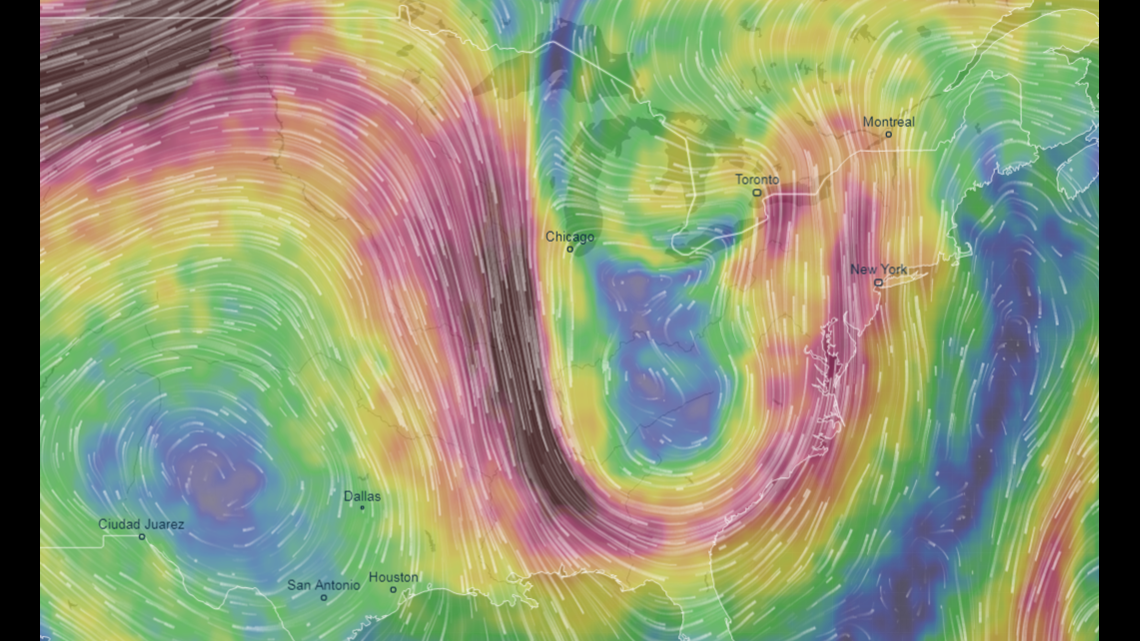
[ad_1]

The jet stream over the United States on July 12, 2018, shows large undulations.
Ventusky.com
Yes, there are giant waves up there in the atmosphere, and they have a huge influence our weather down here.
But the waves aren’t water, they’re strong “jet-stream” winds that a new study says are acting strangely due to human-caused global warming. This, in turn, appears to be causing more wild and extreme summertime weather for us earthlings – and could increase in the decades ahead.
In summer 2018, for instance, impacts on extreme weather due to the weird behavior of jet stream winds were felt worldwide, according to study lead author Michael Mann of Penn State University.
“It played out in real time on our television screens and newspaper headlines in the form of an unprecedented hemisphere-wide pattern of extreme floods, droughts, heat waves and wildfires,” Mann said.
What’s happening, on a very basic level, is that unusual warmth in the Arctic is causing jet streams – the rivers of air in the atmosphere that push and pull our weather around – to slow down, stall or meander in strange ways. When the undulations of the jet stream lock in place, weather systems can be trapped and cause havoc down here.
“If the same weather persists for weeks on end in one region, then sunny days can turn into a serious heat wave and drought, and lasting rains can lead to flooding,” said study co-author Stefan Rahmstorf of the Potsdam Institute for Climate Impact Research in Germany.
The extreme and unusual jet stream patterns – known technically as “quasi-resonant amplification – could increase by as much as 50 percent by 2100, the study said.
A wild card, however, in this theory is that another human-caused ingredient – air pollution – could actually counteract the impact of global warming on our atmosphere. This happens because the pollutants reflect sunlight back into space, keeping Earth cooler.
Daniel Swain, a climate scientist at UCLA and the National Center for Atmospheric Research who was not involved with the new research, told Inside Climate News the study has some “compelling new evidence on the link between amplified Arctic warming and extreme mid-latitude weather during the summer months.”
As far as what to do about our warming planet, the song remains the same: “The future is still very much in our hands when it comes to dangerous and damaging summer weather extremes,” said Mann. “It’s simply a matter of our willpower to transition quickly from fossil fuels to renewable energy.”
The study appeared in the journal Science Advances.
Copyright 2017 USATODAY.com
[ad_2]
Source link